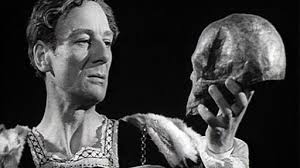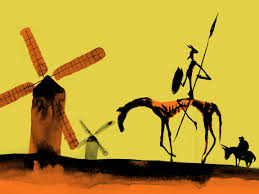The Globe is not a Theatre, and the Blood is Real
This week world literature noted two anniversaries: British poet and playwright William Shakespeare and Spanish writer Miguel de Cervantes both died 400 years ago on April 23 1616. In the books they wrote, each of them revealed different, but equally important aspects of how humans approach the reality of living together. Which in general terms means political philosophy. It is important for all of us because we have advanced into the cosmic space, we use nuclear technologies and now we are already breaking into the unknown area of artificial intelligence, but we still have not solved a problem of much higher order of priority: what is the most adequate system for humans to live together in a globalized world with powerful technologies in their hands?
Going through Shakespeare’s most popular plays “Hamlet”, “King Lear”, “Macbeth”, “Henry VI”, “Richard III” we observe the tragic plots where, fighting for the throne, brother murders brother, uncle murders nephews, nephew murders uncle in revenge and daughters humiliate their own father. In a way those great works of literature can be regarded as attempts to dissect how power, the eternally critical key concept in politics, was functioning in medieval Britain. The blood running already 400 years on the theatre stage when “Macbeth” is on might not always be a nice view, but that is not Shakespeare’s fault. And more importantly, real human blood never stopped running in conflicts and violence all over the world. It is not about the “Globe” theatre, it is about the globe itself.
And it’s all about obsession with power, perceived by some as the highest meaning of life and ultimate value of existence: the throne that makes you different from and superior to all of the rest of the people in the country. That model of power turned out to be a theme so fascinating that it got reborn into a 21st century version of the Shakespearian world – the “Game of thrones”, thus hardening even more the illusion that because it always has been like that in human history, it has to be like that in human future too. With all the consequences.
Where is the obsession with power coming from? Why were those people so hopelessly convinced that they would not have a completed life of a human being if they were not the king? Is the primitive adoration of power an atavistic sediment from the survival instinct of the wild animals in the jungle who felt vulnerable when not strong enough? Is power the shortcut to grab other people’s wealth? Or is power the universal remedy for a person to compensate their inferiority complex like the ugly and disabled Richard III, or Hitler with his anatomical specificities?

Hamlet
Shakespeare did not elaborate into the dark motivation for power. Neither had he questioned his reality. He just stated that this is the world, and that human nature is what it is. Shakespeare never reached beyond the point of despair in Hamlet’s famous “To be or not to be; that is the question”, but he marked the issue of political power in a way that no one can afford to disregard – now and in the future to come.
Miguel de Cervantes, from the point of view of civilizational thinking, went one step further. In “Don Quixote” he created “a hero who carries his enthusiasm and self-deception to unintentional and comic ends”.

“Don Quixote” is an encoded story about a world with relations among humans that Cervantes deemed unacceptable. By stating that “Too much sanity may be madness and the maddest of all is to see life as it is and not as it should be”, Cervantes declared that we need to change our world.
Who are we waiting for to take the next step?
Who will rationally design the vehicle that can bring human civilization closer to where we all would want it to be – a world of sustainable prosperity?
